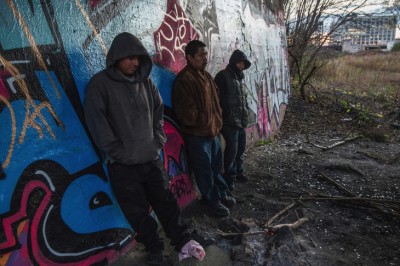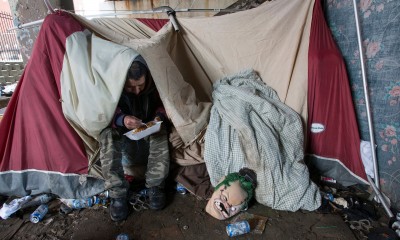
The claim that all homeless or poor people are lazy and should just get a job to cover their finances is an idea that makes sense on the surface but doesn’t take into account that housing costs are extremely high and wages are low. Even with a minimum wage job, many are unable to afford basic housing and utilities.
As if these struggles aren’t enough to keep poverty and homelessness rampant throughout the nation, some employers look to exploit workers that are in desperate need of jobs and willing to settle for unjust wages and working conditions.
An example of this exploitation is present in Illinois and the attorney general, Lisa Madigan, is not letting the violation of civil, human, and labor law rights go unnoticed. Madigan filed a complaint in November of last year, claiming that three nearby hiring agencies and two Illinois restaurants are guilty of these violations.
Of the accused businesses, one closed shortly before the investigation began for building code violations and the rest all deny the allegations or say that they are not responsible for the violations.
“These employment agencies target vulnerable Latino workers and place them with restaurant employers who exploit them.”
These Latino workers, despite their employment through these agencies, are still homeless and living underneath bridges in Chicago. They often work for Chinese buffets, Japanese sushi bars and steakhouses, and various restaurants in neighboring states where they are sent by Chinese employment agencies.
The agencies pay up front for bus or train tickets to send the employees to restaurants requesting workers in other states. The workers live in housing controlled by the owners of the restaurants, but this living is not free. For each job that they work, the employees owe the agency a commission for finding the job and paying for the ticket which could range from $120 to $250 for each job. It takes the workers about 4 days just to earn enough money to pay the commission and transportation.

As for their wages, they typically earn $400 to $600 each week, which may seem like a solid amount except for the fact that they work six days every week and 12 hours each day. When they return home after the job is over, they live on the streets once again.
The hourly wage comes out to $5-8, despite the fact that the Illinois minimum wage is $8.25 and the federal minimum wage is $7.25—and that doesn’t include the overtime pay that these workers should be receiving. Wages go as low as $3.50, according to the attorney general’s complaint.
Despite enduring these terrible working conditions, the owner of one of the agencies under investigation said that “the people under the bridge are no good, lazy.”
In the complaint, which was filed on behalf of the public and the Illinois Department of Labor, it says, “These unlicensed employment agencies have targeted Latino workers and actively marketed their ability to provide such Latino (or ‘Mexican’) workers to Chinese buffet restaurants that looked to fill low-paid kitchen positions.”
One of the workers, Mario, speaks of his concern for being homeless:
“I speak more Chinese than English, I like my job. But I never thought I would be living under a bridge. If I die here, I die alone.”
The homeless situation in Chicago, Illinois, and the nation is much more complicated and cannot be solved by simply getting any job. A compliance with labor laws, human, and civil rights could be a start to protecting these workers and getting them back on their feet, but a great deal needs to change before poverty and homelessness can be improved.
This article (Employed But Still Homeless: Why Illinois Attorney General Is Suing Employment Agencies) is free and open source. You have permission to republish this article under a Creative Commons license with attribution to the author and TrueActivist.com


